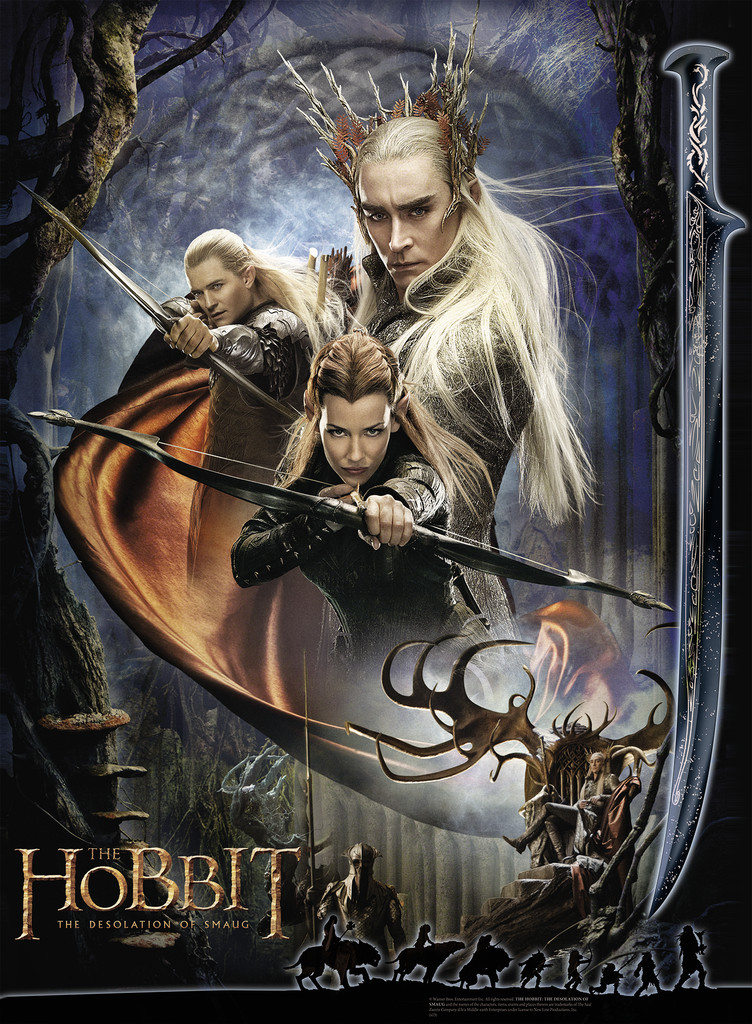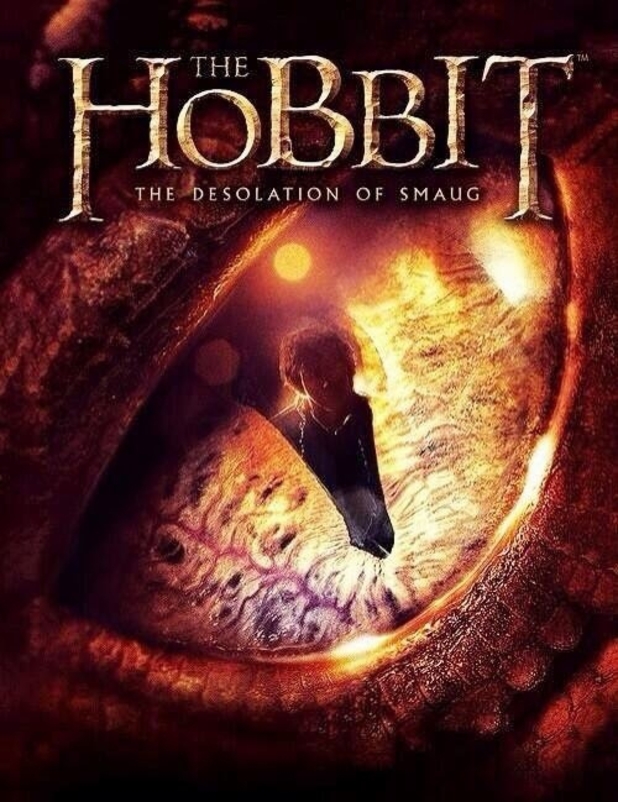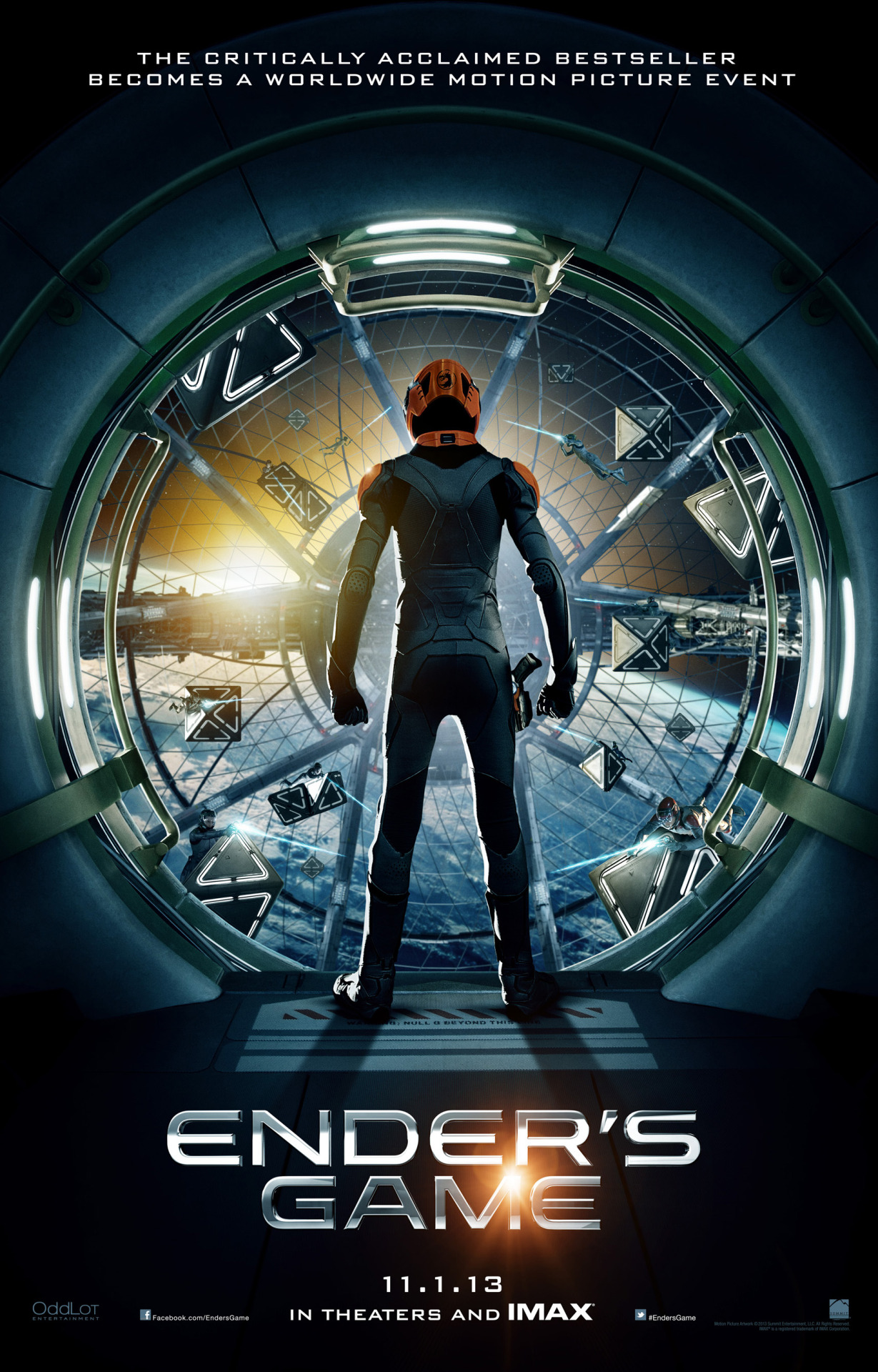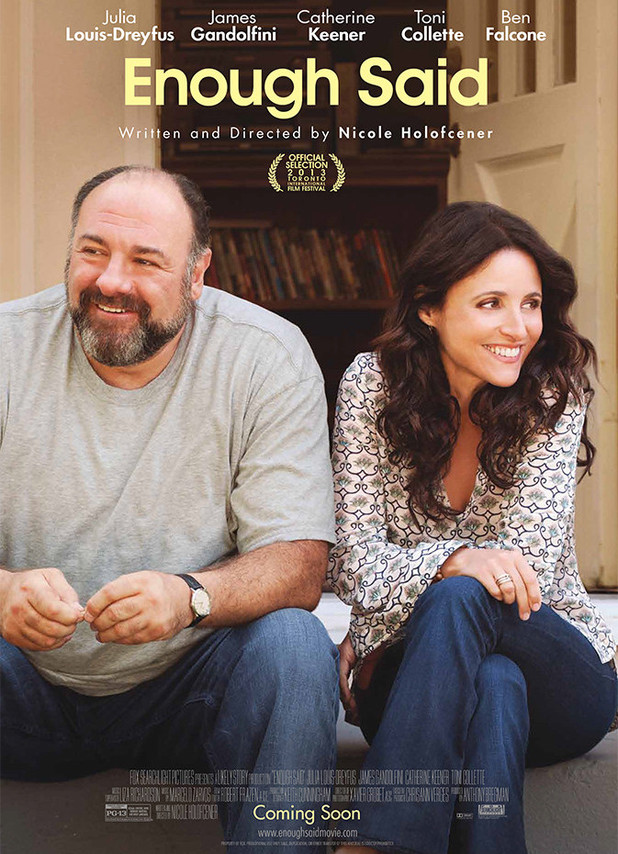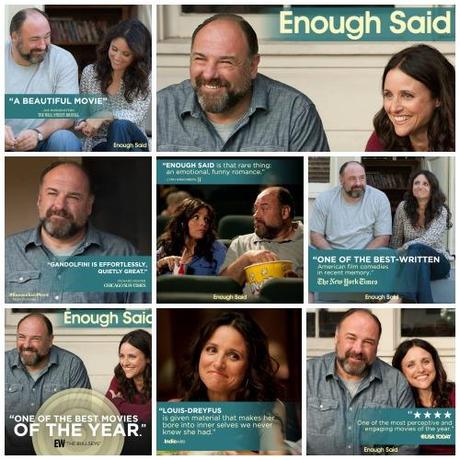Saturday, December 21, 2013
The Case for The Lord of the Mountain
The hype around The Hobbit: The Desolation of Smaug is pretty intense, most seeming to focus on how it is a great film because it is faster and shorter than the first Hobbit movie. That is not to say the first is bad and, I have to admit, it does not mean the second movie is that great.
Yeah, unfortunately, the hype made me a little disappointed with The Hobbit: The Desolation of Smaug. I was expecting too much I think. And that was probably just my fault.
The film follows Bilbo and co from where we left them in the last film over to the Lonely Mountain and their first encounter with the terrible dragon, Smaug, who has taken the Dwarf’s home as his own. The voyage takes them through Mirkwood forest, a battle with large spiders, an encounter with a bunch of completely arrogant Elves (apart from Evangeline Lilly’s Tauriel, who I really liked), another battle but this time with Orcs, a visit to a city on a lake, and finally the encounter with Smaug.
So there is really quite a lot going on, and it all proceeds at a fair clip. There is also a back story about Gandalf (Ian McKellan) and his adventures in a castle elsewhere in Middle Earth, the back story which will eventually lead to that other series of movies, the Lord of the Rings – that story is quite exciting if, ultimately, it will be played out at another time.
Characterwise, there is very little to say about the Dwarves. They don’t really interact a lot though they get into a lot of action. Bilbo is kind of the same. Of the new characters, Tauriel is by far my favourite (even if she is an elf), having an actual bit of backstory and some emotion – so of course, she has to be one of the characters that is not actually in the book. Even Legolas (Orlando Bloom), who was quite nice in the other set of films, seems a bit older and less pleasant even though this is meant to be set 80 years before. His arrogance (and that of most elves) is a complete turn off, though perhaps that actually is in keeping with the thrust of the books which is very pro-Dwarf.
Even Stephen Fry, master of the English language, has a bit of a tepid character, as do most of the citizens of Laketown. When tragedy is about to befall them, I kind of wanted it to come quickly and put an end to them all.
But the dragon is cool. I could not hear Benedict Cumberbatch at all in Smaug, but he is there, and the dragon is menacing. Pity then that their conflict is a bit drawn out and so ultimately a bit boring.
Actually, most of the action sequences do tend to be on the long side, and like in the first film, play out a bit like video games – exciting and frenetic, but a bit forced and convoluted. And its also a little disconcerting when the special effects, mostly excellent, look a bit terrible, like when Legolas rides off into the night on his horse across a bridge. Partly it might be the high frame rate projection, which has been internationally been panned and still seems to make some things look quite fake (as to them being fake but looking real). Nonetheless, with the amazing 3D bee and the incredible Atmos sound system, it was definitely worth seeing the film at my beloved Embassy even if, from time to time, the extreme sharpness and clarity and high techery of the image was to the films detriment.
Verdict: The audience laughed and loved it and I was interested throughout, but on leaving the cinema, I realised I felt a little bored through some of the bigger action sequences of the Hobbit: Desolation of Smaug, and almost everyone is a bit irritating. Thank heaven for Gandalf, Tauriel and to some extent Bilbo – though to be honest, I am not yet completely convinced by Martin Freeman as the hero just yet. But there is still one more film to go. 8 arkenstones out of 10.
Saturday, December 14, 2013
The Case for Wiggin Out
The hype around the movie version of Ender's Game has not been that positive, though mostly the negativity focussed on the opinions of the book's author rather than the film itself.
Of the film, I had heard little, though the previews painted a picture of a film that might be a little... dull (in comparison with something like the Hunger Games) but was going to be visually spectacular. Still, I was keen to go, even though I was a little uncertain how the screenwriters would adapt the book to meet the needs of the screen and whether I would appreciate how they had interpreted the fight and battle scenes.
And unfortunately I didn't.
Its not the actors' fault - well, except for Ben Kingsley, but more on him later. Harrison Ford plays gruff Colonel Graff, determined to mould young Ender Wiggin (Asa Butterfield, big eyes dewy to maximum effect) into the hero that will save humanity from the Fourmic race (called the Buggers in the books, but the name was changed for political reasons). Ender is trained in schools on Earth and in orbit on how to be the best commander the world has ever seen, to win no matter the cost, but to not be unnecessarily cruel because, in the paraphrased words of Wiggin himself, to know the enemy is to love them. Of course, it doesn't help that the term "winning" in this case is a moving target. When fighting human opponents, winning tends to mean scoring more points in the battle simulations (and the zero g engagements are quite well done); but noone really defines what "winning" is against the Fourmics.
As the battles get bigger and more intense, the film is meant to ratchet up a notch, but unfortunately (and this may just be for a New Zealand audience), the appearance of the legendary Mazer Rackham (Ben Kingsley) actually detracts from the escalation going on in the film. His strange Australian / South African accent is distracting yet forgivable until he explains to Ender that he has a facial tattoo as his father was a Maaaari, complete with Australian twang and all. Perhaps he was a Mozzie or something, but even the GC cast were, I am sure, respectful of Maori pronunciation. After being quite silent and engaged up until that point, the audience all burst out into an embarrassed round of nervous laughter. And from there on in, every time Rackham spoke, it was hard to keep a straight face.
The ending of the film, like the beginning, was a bit rushed and stumbled a little. I did not think that things were made particularly clear as to what exactly was going on. The book has a lot of threads that the movie just didn't have the time to cover, but the movie seemed to refer to these an awful lot, even when we knew there would not be any pay off. Ender's brother and sister (who I found had the most annoying hair imaginable) play a strange and important role in Ender's life, but we get more scenes of a computer generated Valentine Wiggin than we do of the real thing (this is not a bad thing in my opinion). And I am not entirely sure what to make of the Fourmics and their civilisation in the end either - am I meant to be impressed with it or something?
Some of the deviations from the book annoyed me but really had little impact on the story that I could see: the fact humanity had faster-than-light ships; the strange reason why the launch pad from earth seemed to be somewhere in the Canadian Rockies (why?); Ender seemed to be getting a girlfriend; and Ender was not the youngest or smallest kid in the school.
Still, the most jarring aspect of the film was Kingsley's accent. The rest was impressive to look at, and though the pacing lagged at times, it kept my interest throughout the running time. But ultimately, at the end of the film, it feels a little empty - why should we feel what Ender feels? Here's hoping that there are no sequels that will try and explain it to us.
Verdict: Ender's Game looks amazing, but doesn't quite manage to turn the source novel into something as good as the Hunger Games. Kingley's accent is appalling (why not just hire Cliff Curtis?) though everyone else on board is solid and fine, and Butterfield does quite well considering the range of emotions he is asked to feel. But overall, the film doesn't quite achieve victory, no matter what tactics Wiggin may use. A 7 on a D10.
Saturday, December 7, 2013
The Case for Saying Enough
Perhaps unsurprisingly, there were not a lot of people who wanted to come along with me to a movie about two divorced middle aged people finding someone.
Even when I waved the fact that James Gandolfini was in it, the Elaine (Julia Louis Dreyfus) factor seemed enough to put others off.
Which was a shame as Enough Said is actually really sweet. Dreyfus plays Eva, a masseuse, who encounters Albert (Gandolfini) a man in a similar situation to her and who shares her (not neurotically Elaine) sense of humour. They hit it off, but when Eva unwittingly becomes friends with Albert's ex Marianne (played by one of my favourites, Catherine Keener), Eva tries to find out what went wrong with the relationship without letting either of them know that she knows them both.
It's all incredibly predictable from there, so there are no real surprises how things turn out; and the above is what is in the trailer so again I am not really giving things away.
What livens things up a bit are the great performances. Albert is played as a loveable slob, and Gandolfini and Dreyfus make you see what they see in each other and why, after a little while, they begin to connect - and disconnect, as things progress. While I like Keener, I was not quite so won over by Eva, though as the ex wife in the not-much-love triangle, perhaps that is the intent of her character. It was also brilliant to see Toni Collette playing a character with an Australian accent (better when Eva says she doesn't understand a word she is saying) though her fraught relationship with her husband and domestic help again seemed to make her a little less than likeable - and of course, as always with these films, she was noticeably absent whenever Eva had a crisis, as best friends seem wont to do in the movies.
Overall though, as mentioned, the performances are great, and the interaction (besides the aforementioned contrivances) seem natural. Eva's daughter and the daughters of all the other characters seem a little sketchy, perhaps due to the actresses playing them or perhaps due to the fact their storylines are so minor in comparison with that of Albert and Eva, but elsewise, its all pretty awesome.
And the film does not outstay its welcome either, finishing up after a sweet, amusing and occasionally painful 90 minutes.
But it leaves the big question unanswered: can James Gandolfini actually whisper?
Verdict: I don't need to write a lot about Enough Said. It's a well written rom com with some lovely performances from the leads even if the story itself is fairly straight forward - not that there is anything wrong with that. 7.5 rearranged items of furniture out of 10.
Subscribe to:
Comments (Atom)

